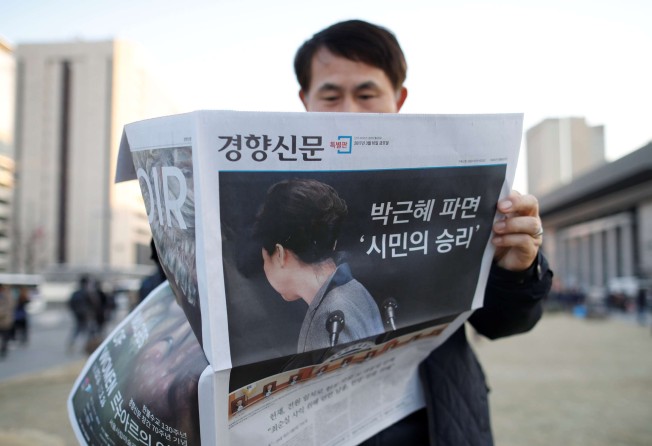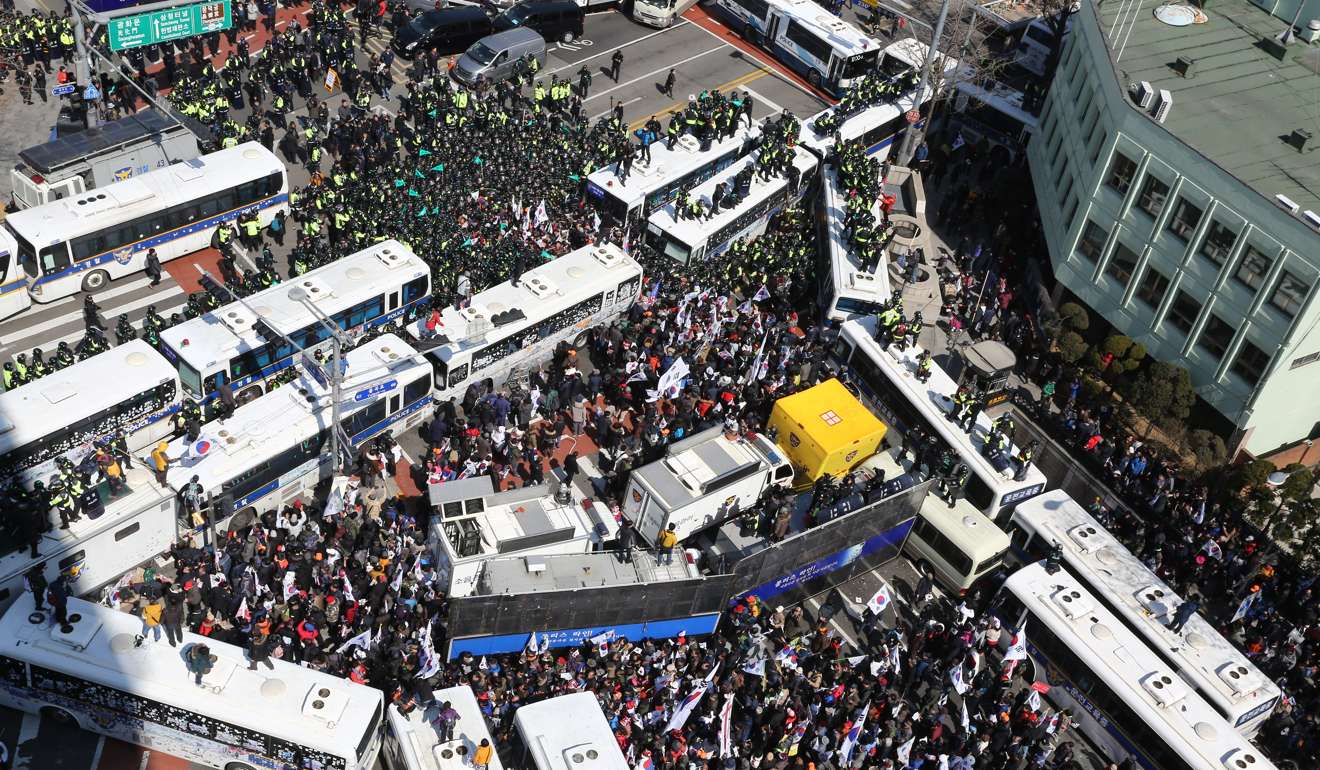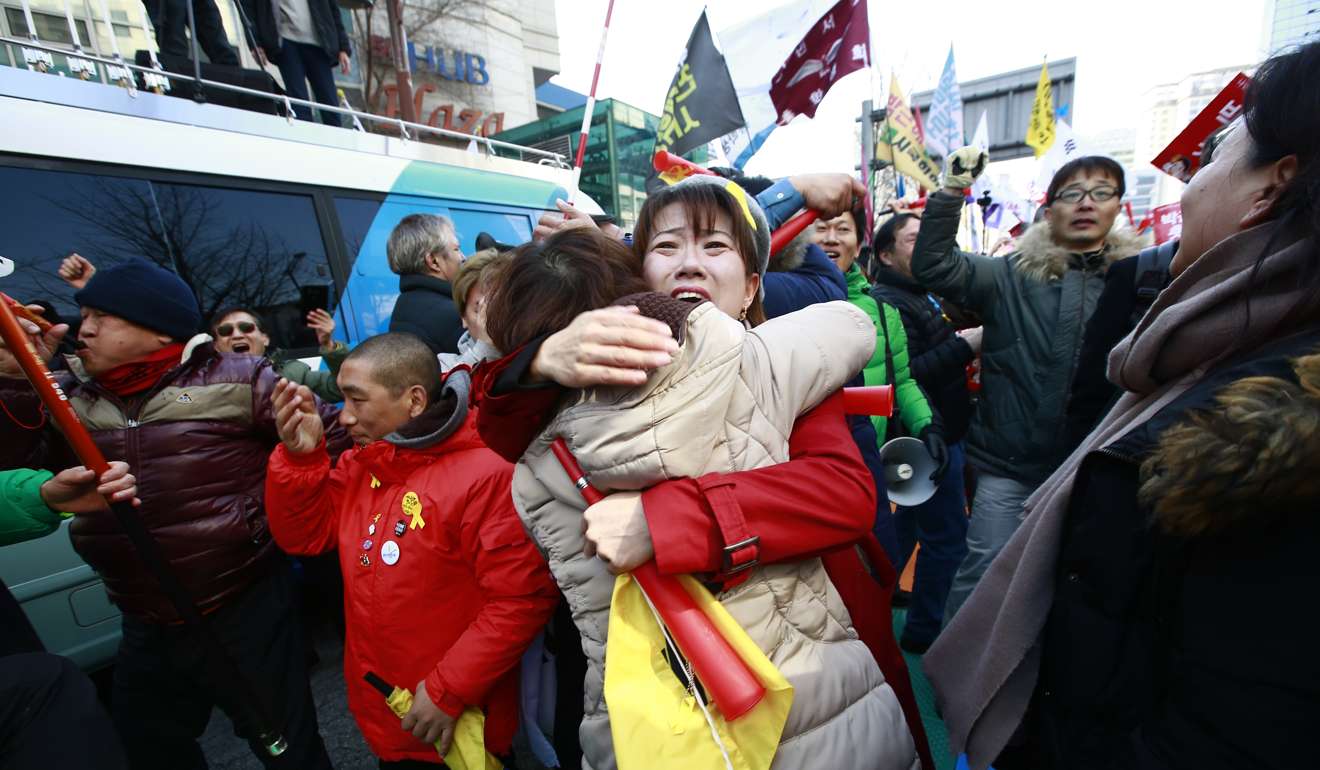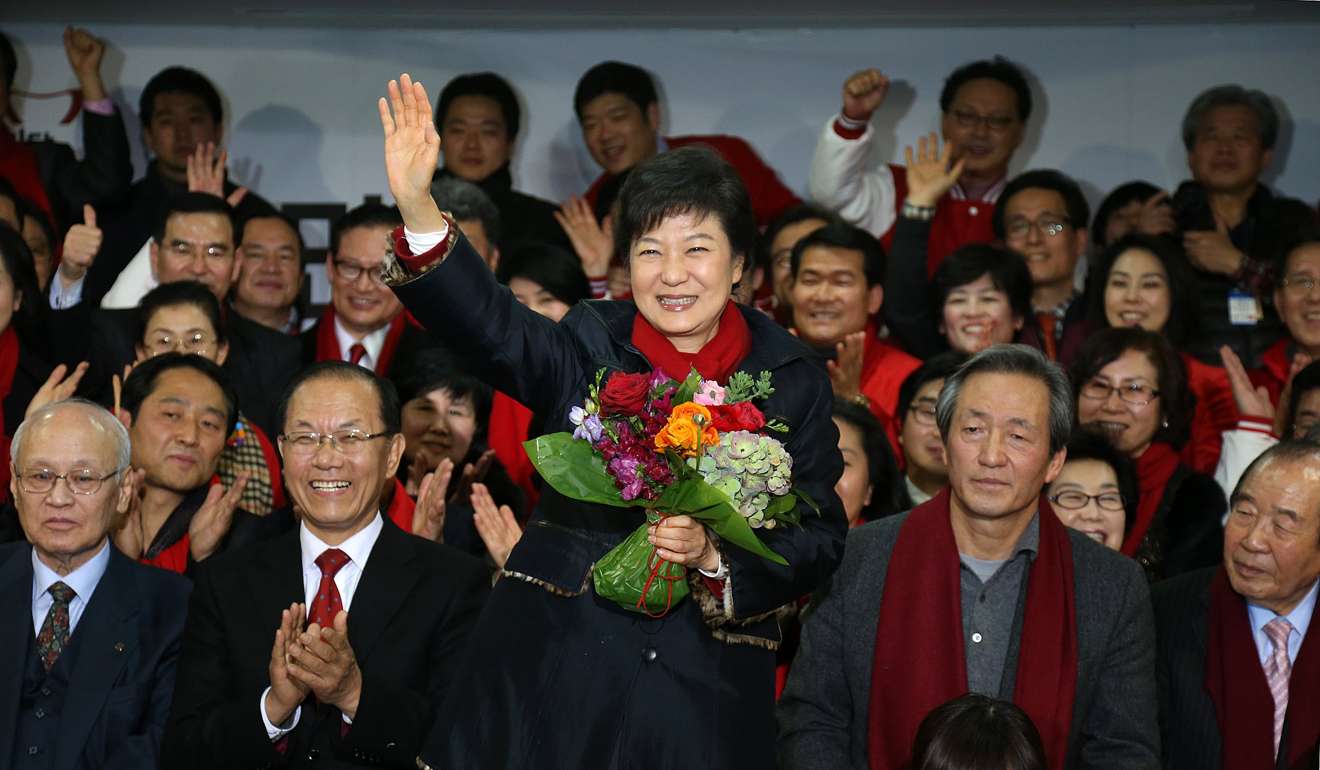Will Park Geun-hye’s exit reshape South Korea’s relationship with China and North Korea?
Seoul’s relationship with Beijing has become strained in recent months over the deployment of THAAD anti-missile system and experts suggest new administration may be unlikely to reverse course

South Korea’s Constitutional Court removed President Park Geun-hye from office on Friday over an influence-peddling scandal involving one of her close friends and the country’s powerful chaebol conglomerates at a time of rising tensions with North Korea and China.
The ruling triggered protests by hundreds of her supporters, two of whom died after clashes with police outside the court.
Park became South Korea’s first democratically elected leader to be forced from office, capping months of paralysis and turmoil over a corruption scandal that also landed the head of the Samsung conglomerate in jail. A snap presidential election will be held within 60 days.
Watch: Park Geun-hye removed from office
Analysts immediately began to weigh the implications for South Korea’s relationship with China, strained in recent months by Park’s decision to deploy the US Terminal High Altitude Area Defence (THAAD) missile-defence system as a precaution against the threat posed by North Korea. Beijing has vigorously protested the move.
Following Park’s dismissal, though, China’s foreign ministry spokesman Geng Shuang was circumspect.
I would not expect a new president could dramatically improve the China-South Korea relationship
“The impeachment is ROK’s internal affair, which China would not comment on,” Geng said. “But as a neighbour, we hope the ROK maintains political stability.
“We again advise the ROK to weigh and value the interests of the people and cooperation of the two countries, face China’s concerns, listen to people’s call, stop the [THAAD] deployment process, and eliminate the obstacles in the way of a healthy development of ties.”
Cai Jian, a Korean affairs expert from Fudan University, suggested Park’s dismissal would “reduce some uncertainties” but did not expect a radical shift under a new president.
“I would not expect a new president could dramatically improve the China-South Korea relationship,” he said, noting that Moon Jae-in, a liberal from the Minjoo Party, is the current front runner in polling.
“Lawmakers from his party visited China to talk about THAAD. But even he says he would only want to ‘postpone’ the deployment. It is hard to expect any South Korean president to give up on THAAD. In fact, it is highly likely THAAD will be in place before the new administration takes over.”

Jin Meihua, deputy head of Northeast Asia Research Centre of Jilin Province, said Park’s personality had affected her policy judgments towards China, suggesting Beijing could perhaps expect a more balanced approach from the next president.
“The China-South Korea relations probably could be repaired to some degree, but can never be as close as at the beginning of Park’s term,” he said.
Park had some impractical expectations of China ... once she got disappointed, she went completely the opposite direction
“Park had some impractical expectations of China in the beginning, particularly relating to North Korea, and once she got disappointed, she went completely the opposite direction, one-sidedly with the US and against China.”
North Korea, for its part, welcomed Park’s fall from grace.
“She had one more year left as ‘president’ but now she’s been ousted she will be investigated as a common criminal,” the North’s state KCNA news agency said.
The constitutional court’s acting chief judge, Lee Jung-mi, said Park had violated the constitution and law “throughout her term”, and despite the objections of parliament and the media, she had concealed the truth and cracked down on critics.

The ruling to uphold parliament’s December 9 vote to impeach her marks a dramatic fall from grace of South Korea’s first woman president and daughter of cold war military dictator Park Chung-hee, both of whose parents were assassinated. The court’s ruling stripped her of all the privileges she could have enjoyed as a former head of state, including the right to be buried alongside her late father at a national cemetery.
Park, 65, no longer has immunity as president, and could now face criminal charges over bribery, extortion and abuse of power in connection with allegations of conspiring with her friend, Choi Soon-sil.

Choi has been charged with pressuring big businesses to pay money to foundations that backed Park’s policy initiatives. She faces additional charges of bribery over what the special prosecutor said was her collusion with Park to take bribes from corporate giant Samsung. Choi, like Park, has denied wrongdoing.
“She apologised to the president and the people for making the situation come to this,” said Lee Kyung-jae, one of Choi’s lawyers. “Her feelings are beyond words and we keep her updated as much as we can.”
Acting president Hwang Kyo-ahn, also the prime minister, called on Park’s supporters and opponents to put their differences aside to prevent deeper division.
“It is time to accept, and close the conflict and confrontation we have suffered,” he said in a televised speech.
Additional reporting by Liu Zhen